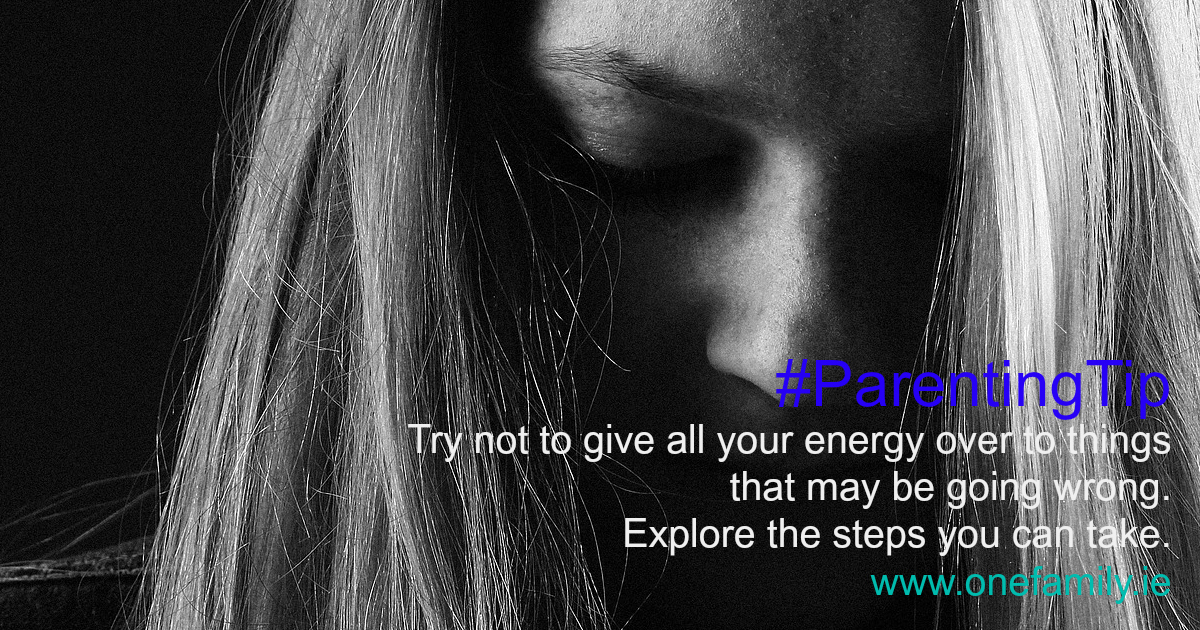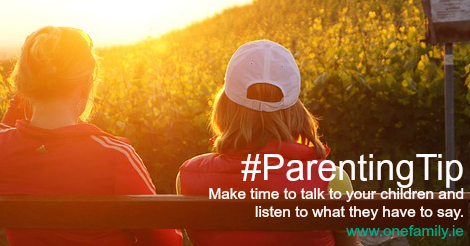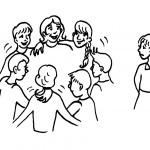One Family offers an exciting suite of training programmes for people who are parenting alone, or sharing parenting after separation, including a number of free courses; and also programmes for professionals who work with parents, children and families.
Whether returning to education or employment, building on skills to strengthen family life, or continuing professional development, Autumn is the perfect time of year to start working towards something that can bring rewards now and in the new year to come.
Our courses incorporate 45 years of experience in supporting parents. Your perfect training opportunity may be just a click away. Read on to find out more.
For Parents: Family Life
Being equipped with resilience and skills to deal with the range of issues that may arise in day-to-day family life, and in times of change, is important for all parents. Booking is open now for our Autumn courses for parents.
Family Communications: Coping with Family Life and Communication with Teenagers This course is valuable for parents of children of all ages but particularly those with teens. It teaches clear communication skills to strengthen family life including assertive parenting, and conflict reducing communication.
Starts: 3rd October 2017
Duration: 10am-12pm one morning per week for 8 weeks
Location: Rialto, Dublin 8
Cost: €40 unwaged / €60 waged
Self-care and Personal Growth When Parenting Alone Parenting alone means carrying all of the responsibility, all of the time. It can be easy to forget to look after ourselves too. This course supports lone parents to explore their self-worth and confidence through learning about the most important relationship of all: the relationship we have with ourselves. The overall aim is to support parents to take time for self-care so that they can be there for their children.
Starts: 3rd October 2017
Duration: 10am-12pm one morning per week for 8 weeks
Location: Clondalkin, Dublin 22
Cost: €40 unwaged / €60 waged
Positive Parenting for Changing Families This practical and positive course for parents of 2-12 year olds builds on existing skills to support parents to manage behaviours and development well, with a focus on understanding the needs of children in order to understand behaviours.
Starts: 3rd October 2017
Duration: 10am-12pm one morning per week for 8 weeks
Location: Clondalkin, Dublin 22
Cost: €40 unwaged / €60 waged
Parenting When Separated To address the challenges of parenting when separated, Parents Plus developed this six week course for parents who are preparing for, going through, or have gone through a separation or divorce. It supports parents to work through shared parenting problems in a positive way that is focused on the needs of children.
Starts: 4th October 2017
Duration: 9am-11am one morning per week for 8 weeks
Location: Smithfield, Dublin 7
Cost: €40 unwaged / €60 waged
Parenting Through Stressful Times This course supports people who are parenting alone or sharing parenting in recognising and positively managing stress in themselves and in children. It gently explores the influence stress plays and how we manage daily challenges, and the many tools that can aid and support adults and children to cope with stress and maintain a healthy balance.
Starts: 8th November 2017
Duration: 12pm-2pm one afternoon per week for 8 weeks
Location: Smithfield, Dublin 7
Cost: €40 unwaged / €60 waged
Online Parenting Support Programmes We offer two facilitated online programmes, Positive Parenting and Family Communications, that run throughout the year. Eight weekly sessions are communicated via email and include reflective exercises and completion of a learning journal, all of which can be done in your own time at your own discretion. Optional individual support by email and mentoring around parenting topics from our Director of Children and Parenting Services, and assessment with issue of a Certificate of Completion, are also included.
Starts: Monthly
Duration: Approx. 2 hours per week
Location: Online
Cost: €9.99
Find out more about all of these courses, or book online, here or call us on 01 662 9212 if you’d like more information.
For Parents: Education & Career
Would you like to get back to education and/or work? It can be hard to know where or how to start. We have two upcoming programmes that may fit your needs. Both are free and offer accreditations recognised on the National Framework of Qualifications.
New Futures, starting in October 2017, is a free 24 week; part-time personal and professional development programme specifically designed for those parenting alone or sharing parenting. It is accredited at QQI Level 4.
Options, a full academic year program beginning later this month, is a part-time introductory programme specifically designed for those parenting alone or sharing parenting, and is run in partnership with Ballsbridge College of Further Education. It provides practical skills for progression into employment, self-employment, and/or college.
More information about New Futures and Options is here. If you are interested in one of these programmes but are unsure if it suits your needs at this time, please email us at programmes@onefamily.ie or call 01 662 9212.
For Professionals: Professional Development Programmes
If you work with parents and/or children; are a family support worker, social worker, youth worker, family therapist, educator, drugs project worker or counsellor, or deliver parenting/family support courses, One Family runs accredited programmes that will help you to build on your skills, knowledge and approach.
Programmes include Positive Parenting for Changing Families, Family Communications: Coping with Family Life and Communication with Teenagers, and half-day Skills Acquisition Workshops.
Booking is open now for:
Workshop: Supporting Families to Reduce Conflict in Communication
This solution-driven workshop explores how to practitioners can support parents in practising clear and direct communication in relation to common family dilemmas using a non-violent communication framework, identifying communications styles, understanding the connection between needs and choices of behaviour, exploring the benefits and disadvantages of conflict within relationships and families, and more. Workshop places will be limited to twenty people, as they will be facilitated in a participatory workshop style, which actively engages participants.
Date: 24th October 2017
Duration: 1pm-4.30pm
Location: ISPCC, 1st Floor Penrose Wharf, 4/5 Alfred Street, Cork
Cost: €50
Book here.
Workshop: Parenting Through Stressful Times
This intense workshop for professionals working with parents and families will explore how they can support parents in understanding the effects of stress on both parents and children, the importance of having support as a way to combat stress, how to identify stress in children and how it impacts on behaviour and wellbeing, and to develop strategies to develop a less stressful environment for children and parents.
Date: 23rd November 2017
Duration: 9.30am-1pm
Location: One Family, 8 Coke Lane, Smithfield, Dublin 7
Cost: €50
Book here.
Our next three-day Family Communications programme is also booking now for February 2018 in Dublin 7. One Family can also deliver workshops and programmes directly at your organisation with a minimum of ten participants.
Sign up to receive our Professional Development updates here to be among the first to hear about our new programmes and schedules.
If you would like to find out more about any of our training opportunities, call us on 01 662 9212 or email
info@onefamily.ie.

























